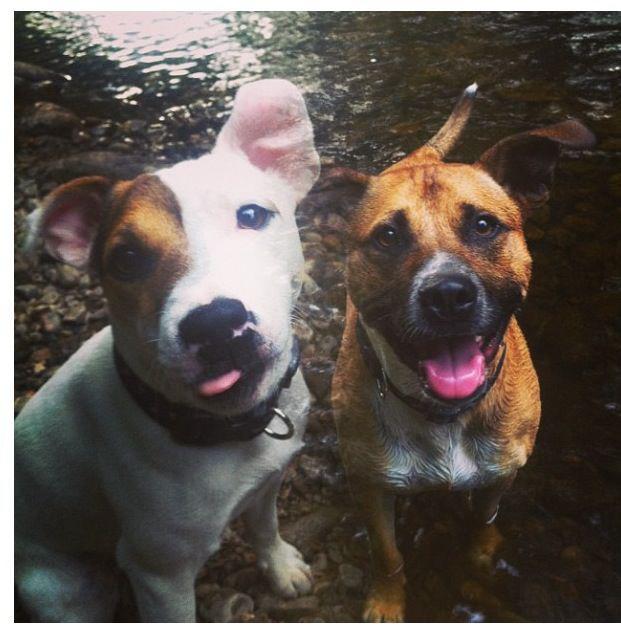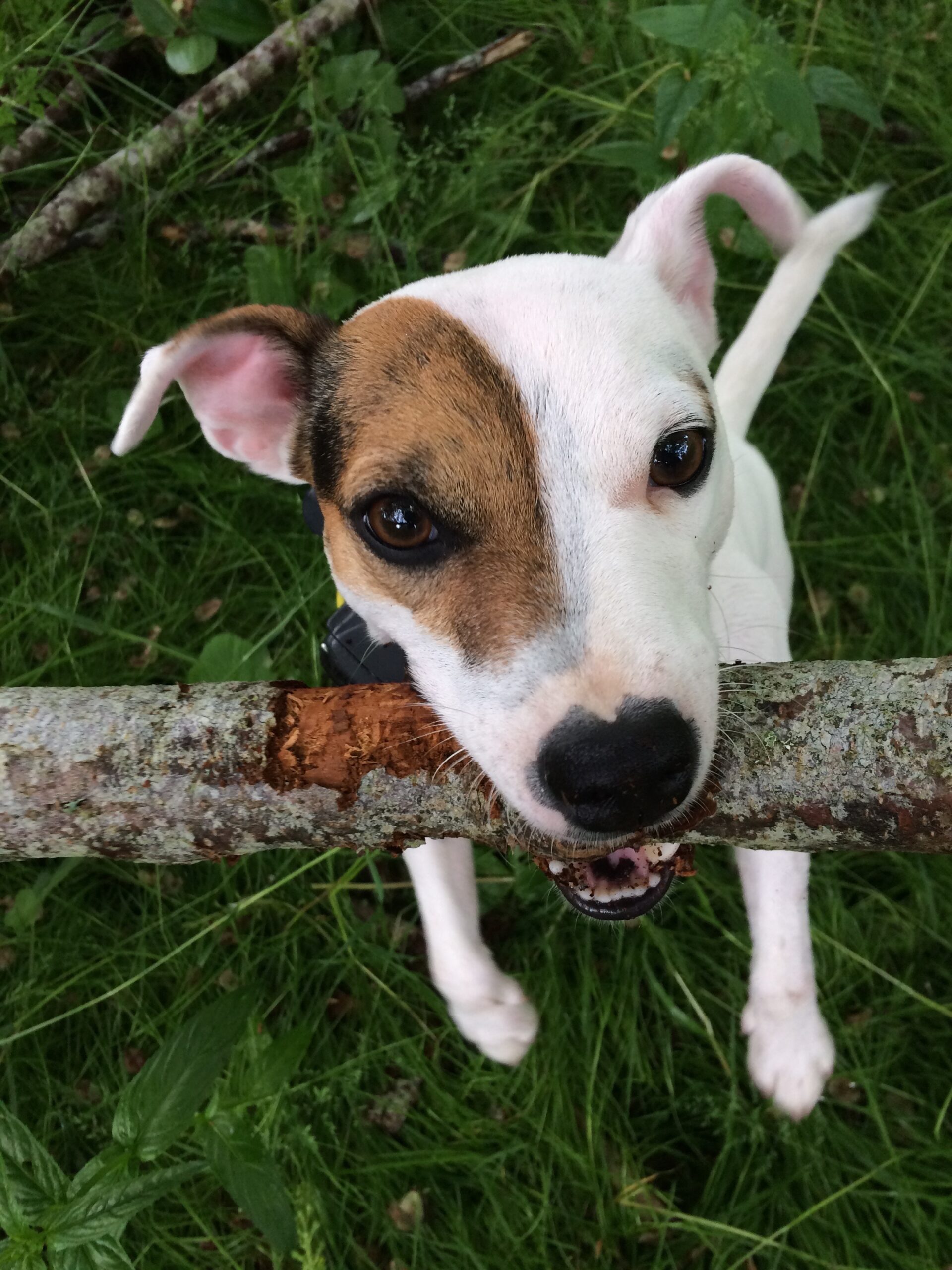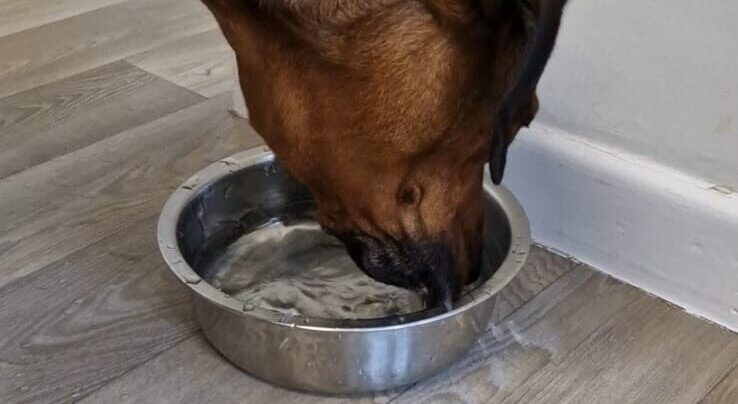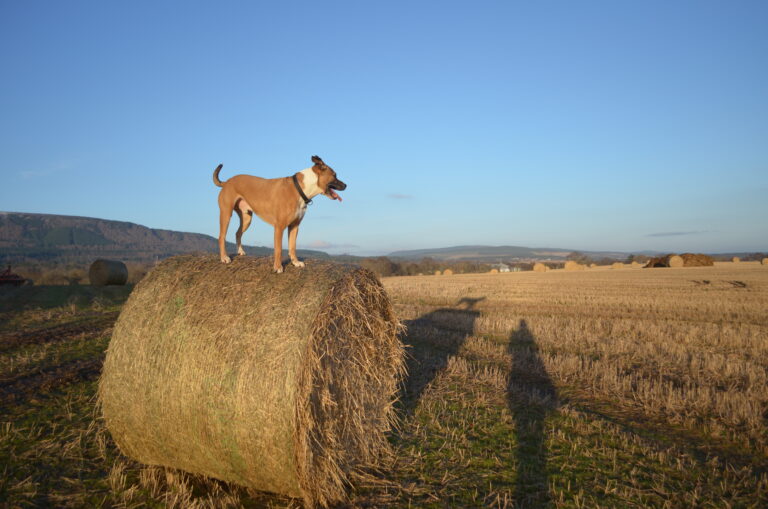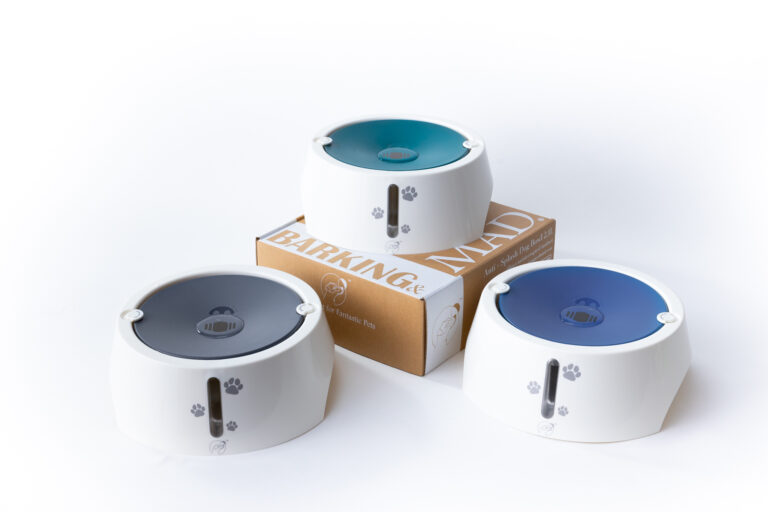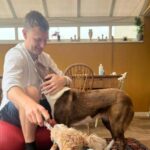Bringing home a new puppy is one of the best things in life—those little paws, big eyes and wiggly tails are just the cutest. But as any seasoned dog owner will tell you, with the joy of a new pup comes a few challenges and biting is at the top of that list. Those sharp puppy teeth may be small but they can hurt especially when your pup hasn’t learned bite inhibition!
If you’re a dog owner dealing with this issue you’re not alone. Every puppy owner goes through this phase and with the right approach you can train your puppy not to bite. This guide will show you how to train a biting puppy, turn those nips into gentle mouthing and eventually stop the behavior altogether.
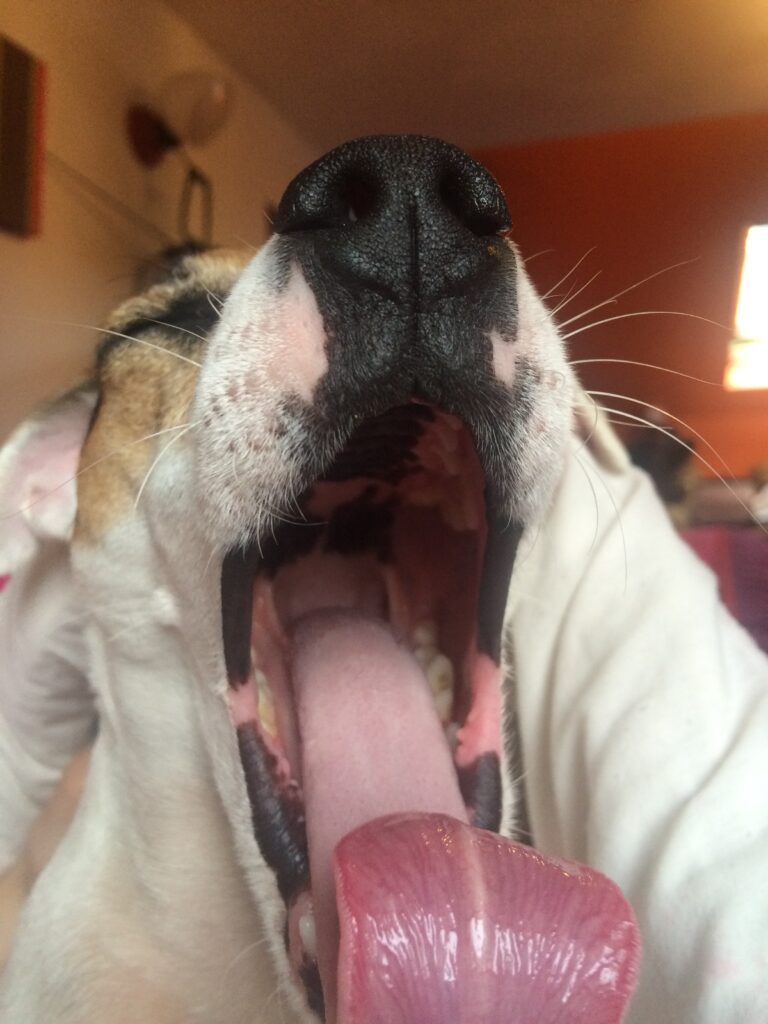
Why do Puppies Bite
Teething – A biting puppy biting can surprise new dog owners, it is actual completely normal! By understanding the natural reasons behind it can help you deal with it better. Puppies, like human babies, go through a teething process where they feel the urge to chew on anything within reach including your hands, shoes and furniture. This chewing helps to alleviate the discomfort in their gums as their adult teeth start to come in.
Beyond teething, biting is how puppies explore their world. They don’t have hands to pick things up or examine objects so they use their mouths instead. So when a puppy bites or mouths your hand they’re not trying to hurt you they’re trying to learn about you and their environment.
Play – Biting behavior is also rooted in play. Puppies learn from each other through interacting with their littermates. Biting is a way for them to establish social hierarchies, test boundaries and develop important social skills. Constantly biting is as much about communication as it is about play.
In the wild these behaviors would naturally teach puppies the limits of biting. A littermate might yelp loudly if bitten too hard and the puppy would learn to bite more gently. In your home it’s your job to continue teaching these important lessons by guiding your puppy towards gentler interactions.
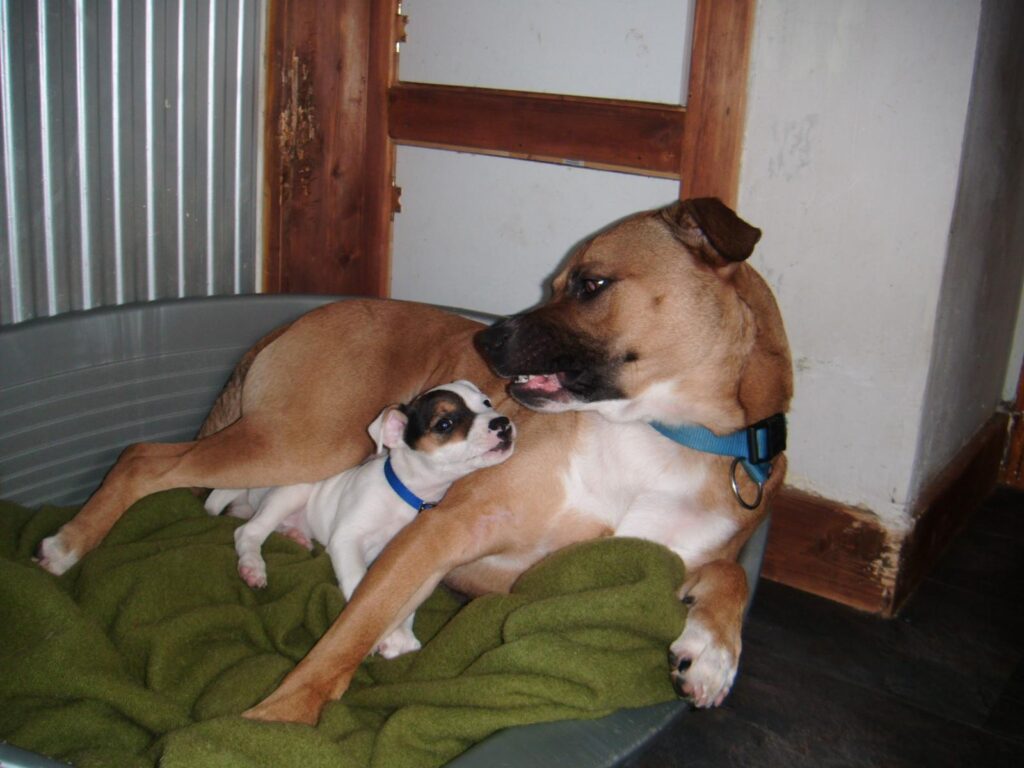
The Power of Positive Reinforcement
Positive reinforcement isn’t just about giving treats it’s about building a strong bond with your puppy based on trust and mutual respect. When you reward your puppy for good behavior you’re telling them they’re doing something right and they want to do that again. This works particularly well with puppies as they are eager to please and highly motivated by rewards whether it’s a tasty treat, a favorite toy or enthusiastic praise.
One, Two, Yelp!
Let say your puppy is biting your hands during play. By using a high pitched yelp followed by immediate withdrawal of attention you can tell your puppy that biting means playtime is over. Then once your puppy has calmed down and is playing more gently you can reward them with a treat and verbal praise like “Good dog!” Over time your puppy will learn that gentle play is a good thing and biting is a bad thing.
These positive reinforcement techniques work because it’s working with your puppy’s natural instincts not against them. Puppies want to be close to you and enjoy your attention. By making your attention conditional on their good behavior you’re setting boundaries in a way that feels natural and positive for your puppy.
Teaching Bite Inhibition
Bite inhibition is more than just a training technique it’s a life skill for your puppy. Without it even a well behaved dog might accidentally hurt someone later in life for example when taking a treat or playing. By teaching your puppy to control the pressure of their bite from a young age you’re helping them develop a critical skill that will benefit them for life.
Here’s how you can add to teaching bite control:
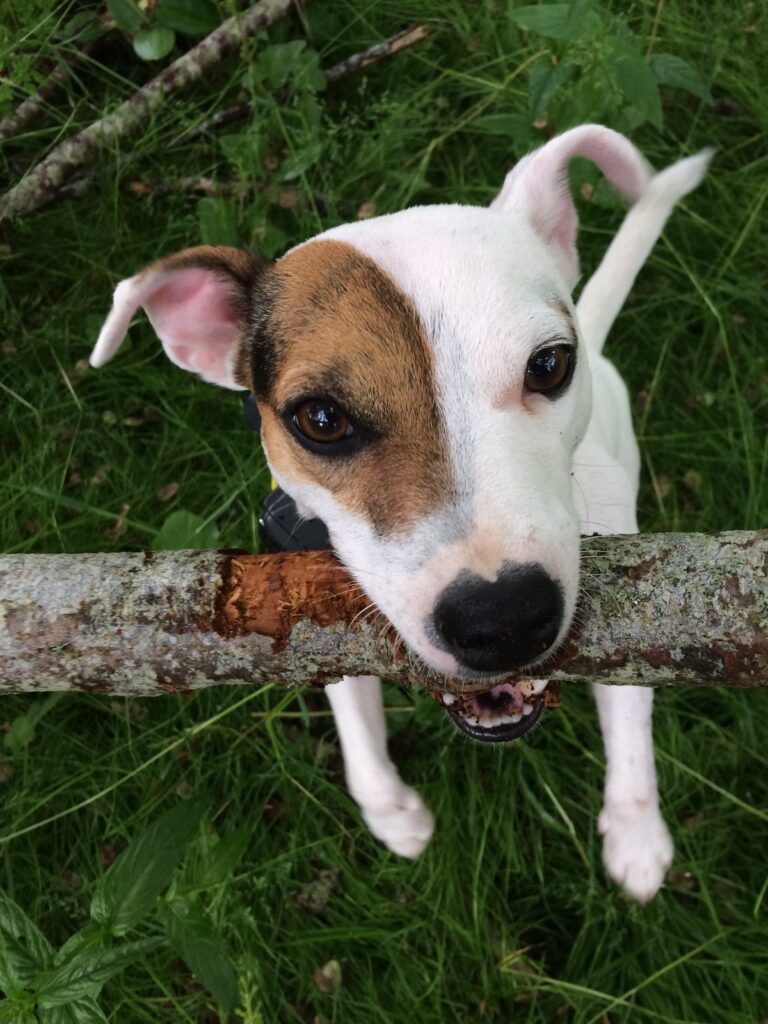
This will prevent injuries and also give your puppy a sense of control and calmness which will translate into better behavior as they mature.
Managing Rough Play and Redirecting Energy
Puppies are energetic and without proper outlets this energy will manifest as rough play and biting. The key to managing rough play is to give your puppy plenty of opportunities to burn off energy in the right ways. Here’s how.
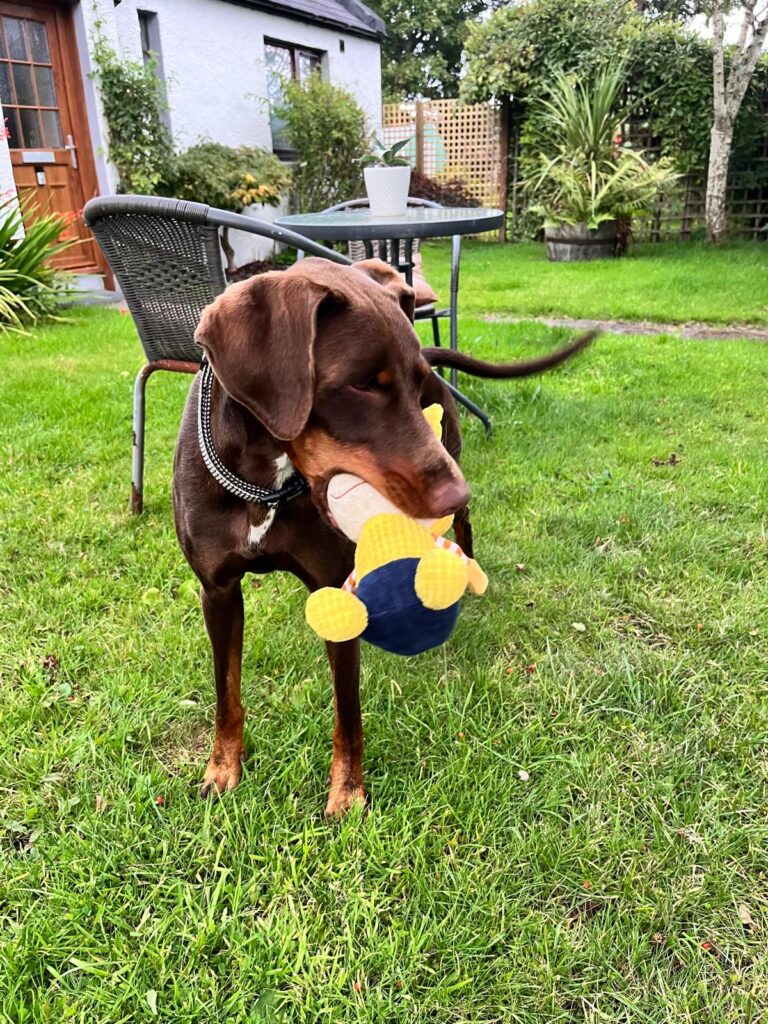
The Importance of Consistency and Patience
Consistency is more than just repeating the same actions it’s about creating a predictable environment where your puppy knows what to expect. Dogs love routine and when they know the boundaries and expectations they feel more secure and will follow your guidance.
Keep Everyone On the Same Page
If you’re working on training your puppy not to bite it’s important that everyone in the household follows the same rules. If one person allows the puppy to mouth their hands during play and another person yelps and stops play the puppy will get mixed messages and the training will be confusing and less effective.
Sit down with your household members and agree on the specific methods you’ll use for training so everyone is on the same page.
Patience is just as important because behavior change doesn’t happen overnight. Puppies like children will test boundaries and may seem to regress in their training from time to time. This is normal. Stay calm and patient and reinforce positive behaviors consistently. Celebrate small wins along the way like a day without biting incidents and use those as motivation to keep going. See our full in depth training guide on puppies.
Remember, most puppies grow out of biting behavior as they mature especially if they’ve learned not to bite early on. With your guidance they will become well behaved adult dogs who are a pleasure to have around. Your patience and consistency now will pay off in the long run and give you a strong bond and a harmonious household.
Still Have Questions? The FAQ!
First make sure they are getting enough mental and physical stimulation throughout the day.
If your puppy nips you during play stop the play, yelp high and offer them a chew toy. This redirection teaches your puppy that biting ends play but chewing on toys is allowed.
Consistently rewarding gentle play will also help reinforce the behavior you want to see.
You can start training a puppy to stop biting as soon as they come into your household which is around 7-8 weeks old.
Early socialization with their littermates lays the foundation and your consistent training will build on that.
Puppies are most receptive to learning in their early months so starting bite inhibition training early will prevent biting issues as they grow.
Yes, a puppy can be trained not to bite but it takes consistent training, patience and understanding of why puppies bite in the first place.
Early intervention with techniques like positive reinforcement and teaching bite control is key. This training helps them know that while biting is natural it’s not allowed in their interactions with humans.
Yes a dog of any age can be trained not to bite but the methods will vary depending on the dog’s age and previous experiences.
For older dogs especially those with a history of biting it may be beneficial to work with a professional dog trainer who can develop a customized training plan. With the right approach even older dogs can learn to control their bite and behave better.
If your dog is constantly biting you all the time you need to first figure out why. Are they biting out of boredom, teething or maybe anxiety?
Once you know the reason you can address it – whether that means increasing their mental stimulation, offering chew toys or seeking professional help for anxiety related issues.
Consistently reward good behavior and avoid rough play that encourages biting.
Puppies will start to decrease their biting around 6-7 months as they finish teething and learn bite inhibition.
But the exact age will vary depending on the puppy’s breed, temperament and the consistency of training. By continuing to reinforce gentle behavior and providing outlets for their energy you can help them grow out biting behavior smoothly.
The End Part
Training a puppy not to bite is a journey but with the right approach it’s a journey that will lead to a rewarding relationship built on trust and respect. By understanding why puppies bite, using positive reinforcement, teaching bite inhibition and managing their energy through structured play you’re setting the stage for a well mannered adult dog.
Consistency and patience are your best friends in this process and while the journey may have its bumps the end result is a dog that knows how to interact gently and positively with people and other animals.
As you go through these training techniques remember each puppy is different and what works for one may not work for another. Be flexible, patient and don’t hesitate to get professional help if needed. The bond you build with your puppy during this time will last a lifetime and the lessons they learn will help them become the loving well behaved companion you’ve always wanted.
